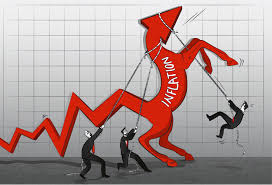 December 2024
December 2024
Reserve fund studies are necessary to know what level of funding is needed in reserve funds. They are also complex documents. They are much more than the one-page summary showing annual fee increases that most owners and directors see.
Since few take the time to read the reserve fund study, it comes as no surprise that so few understand it or the reserve fund.
The reserve fund study is how condo owners determine how much money to set aside for future maintenance and replacement of building common areas. It serves as a way to monitor condo board conduct and management of funds generated by monthly condo fees paid by owners. Unfortunately, there is considerable leeway for condo boards to deviate from best practices when determining proper funding and adherence to reserve fund study recommendations.
What is a Reserve Fund Study
An engineering company is employed by the board to inspect the building, identify all building components, estimate future major repairs or replacements, and approximate the year in which this work will need to be completed. The report they provide, a reserve fund study, is a complex spreadsheet covering this work for the next 30 years. More credible reports are provided by working with a 40-year period.
The condo board should review this information and request adjustments based on community priorities. They may want to speed up or delay certain renovations, or upgrade finishings to something of higher or lower quality. The engineering firm takes this information and incorporates it in the reserve fund study.
From this final report, estimated reserve fund expenditures for each year are determined. Condo fee contributions for the reserve fund are established to ensure adequate funds for all anticipated expenditures.
When everything is done properly, future owners are assured they will be purchasing a home in a well-maintained building without concern about future special assessments or the corporation having to borrow money. Current owners should be comfortable knowing their fees are being used responsibly.
Reserve Fund Perspectives
Owners, condo board, management and contractors view the reserve fund study differently.
Owners, and frequently the board, see nothing more than a single-sheet summary showing how much is paid into the reserve fund and annual rate-of-inflation increases that can be understated or overstated if the board fails in their diligence. Until recently, the “standard” annual increase was two percent despite costs increasing by more than five percent. For 2022, cost increases were nearing 18 percent.
After years of inadequate funding of the reserve fund, a special assessment becomes necessary to provide required funding.
Condo boards can prioritize low condo fee increases over properly maintaining the building and its infrastructure. Condo boards can underfund reserves in numerous ways. The easiest way is to push repairs and equipment replacement into the future, or to pretend some are unnecessary. There are adjustments that can be made to “reduce” reserve fund requirements. This allows condo boards to present owners with lower condo fees for a short period. Required funds do not really drop so future increases or special assessments are inevitable. Some condo boards want to hide their problems. Toronto Condo News has written of communities where boards successfully hide their problems and mistakes, and keep condo fees too low, for more than 20 years before extreme corrective measures become unavoidable.
The engineering company is expected to provide an unbiased reserve fund study. In practice, some may defer to condo board requests to ensure renewal of their contract. They may omit certain items, understate costs for others, or tweak the inflation rate used to adjust future costs.
Condominium managers have flexibility in recommendations to the board when advising on necessary repairs and equipment replacement. When their recommendations are based on something other than what work really needs to be done, this can change the reserve fund balance from what it should otherwise be.
All views are, to some extent, correct. An effective reserve fund study is one that provides balance to these different perspectives.
The Condo Act establishes basic parameters for reserve funds and reserve fund studies that are stricter than for regions outside of Ontario. Only condo boards can ensure these studies are conducted, and funds obtained, in the best interests of condo owners by considering all perspectives and acting accordingly.






